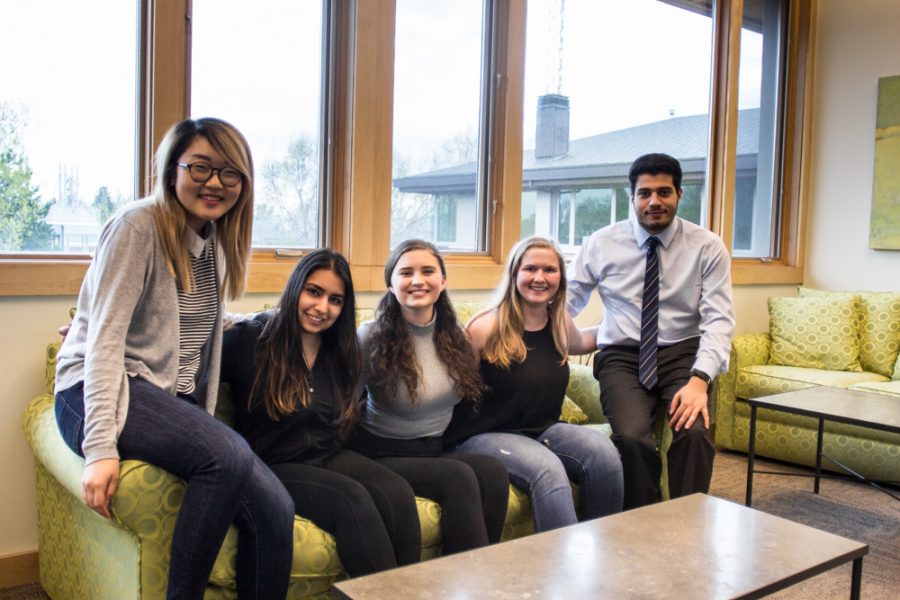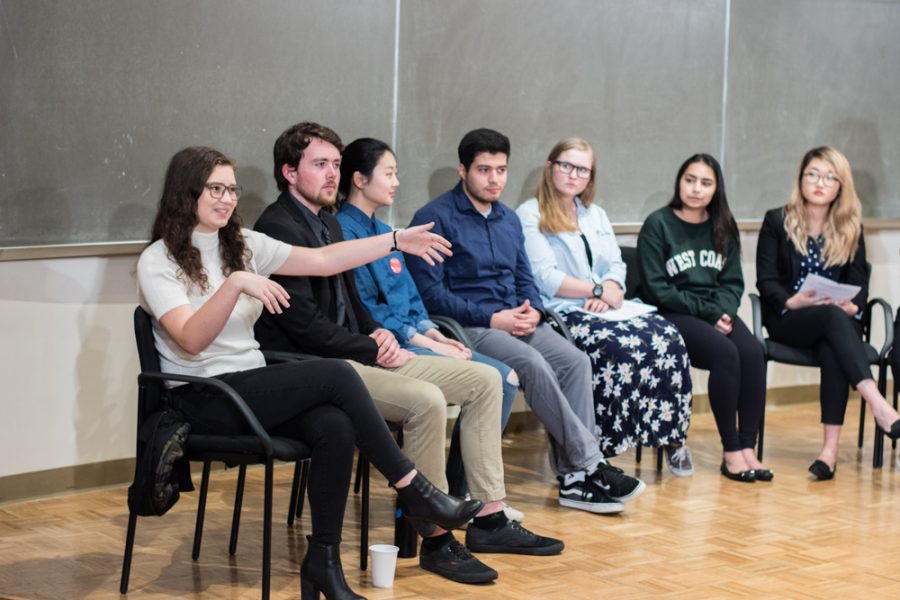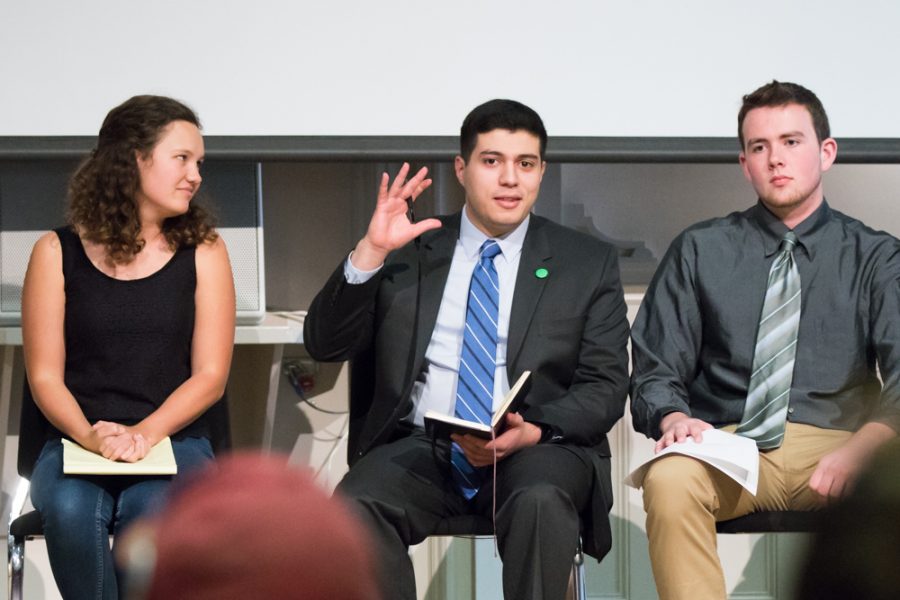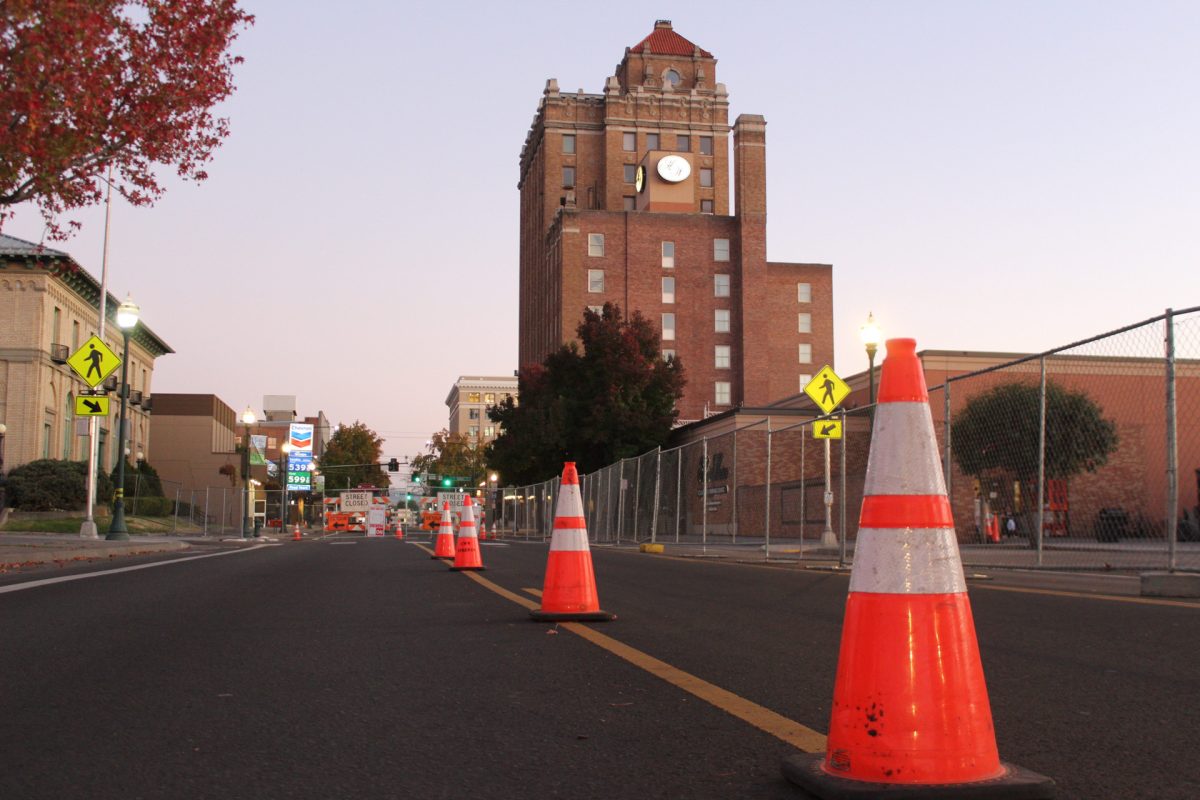
First-years Andrew Rivas, Arthur Shemitz, Dana Casterella and Mitchell Cutter will join Associated Students of Whitman College (ASWC) as the newest class of senators following elections on Tuesday, Sept. 30. The senator-elects were among 11 candidates for these positions in the election, which included unopposed junior Tabor Martinsen, who will fulfill the junior senator position when current ASWC senator, junior Sayda Morales, goes abroad in the spring.
Out of the eleven first-year prospects, eight were female, but only one was victorious. All three male candidates won in the elections.
The new senators bring fresh ideas and viewpoints, and join ASWC leadership in advocating for reform in ASWC’s relationship with students.
“I think the great thing about first-year candidates is that they come in with a fresh perspective,” said ASWC President Tim Reed. “They don’t take things for granted, and they’re able to critique things to see what we need to do better.”
Fresh perspective and an enthusiasm for change was discernible among the candidates at the First-Year Senate candidacy hearing last Thursday, Sept. 26.
“I’m new here and I don’t know of the problems yet, but there are 400 other people in the freshman class who will come up with something, and I want to be accessible to their needs,” said Cutter.
Similarly, the platforms that the senators presented during their candidacy highlighted similar goals that Reed has in mind for the upcoming year. One of those goals includes communicating the roles and accomplishments of ASWC to the student body in a more “strategic way” as described by Reed. One of these ways would be by simplifying the ASWC website, an idea with which the first-year senators were similarly concerned.
“I think people see ASWC as this shadowy cabal because it’s not really widely understood,” said Shemitz. “ASWC should have more information, even a short couple paragraphs on the website, about what ASWC does.”
Through a different mode of communication with the student body, Reed also plans to implement more discussion surrounding race, class and privilege by implementing similar activities to the Race Symposium that began last year.
“We’re already set to make something like that an actual institutional mechanism,” said Reed. “I want to find ways for fostering that kind of discussion and community feeling all year round.”
Finding ways to emphasize and discuss diversity is similarly on the minds of newly elected first-year senators.
“Students with diverse backgrounds and cultures were accepted [to Whitman] because they brought [diversity] to the table, but now that they’re here, they feel like it’s gone to the back burner,” said Rivas. “I feel like highlighting diversity is a really important part of the college experience.”
Reed has other institutionally minded ideas for ASWC, which he believes are issues that rose to importance last year. One of those ideas is utilizing iEngage to network and communicate with Whitman alumni. In his vision, iEngage would not only be a resource for students to find jobs both locally and nationally (as it is now), but it would also have a list of alumni on each job or internship description who have worked in a similar job market and would be willing to act as a mentor for a current Whitman student.
“Finding someone who has the resources and connections is critically important, and I think ASWC can be the impetus and force behind the SEC (Student Engagement Center) to make those things happen,” said Reed.
This institutional force that ASWC holds over the student body is a message that both Reed and the first-year senators want the student body to understand.
“We’re only the liaisons here and will do our best to affect change, but if more people participated and were involved, the quicker and more efficiently we would be able to achieve these things,” said Casterella.
Communication and innovation are two aspects that the First-Year Senate and Reed hope to turn over in the following school year, beginning at 7 p.m. on Oct. 6 at the first Senate meeting. Hearing and appeasing student desires is an important function of ASWC, and one that will be a primary ASWC function in the upcoming year.
















